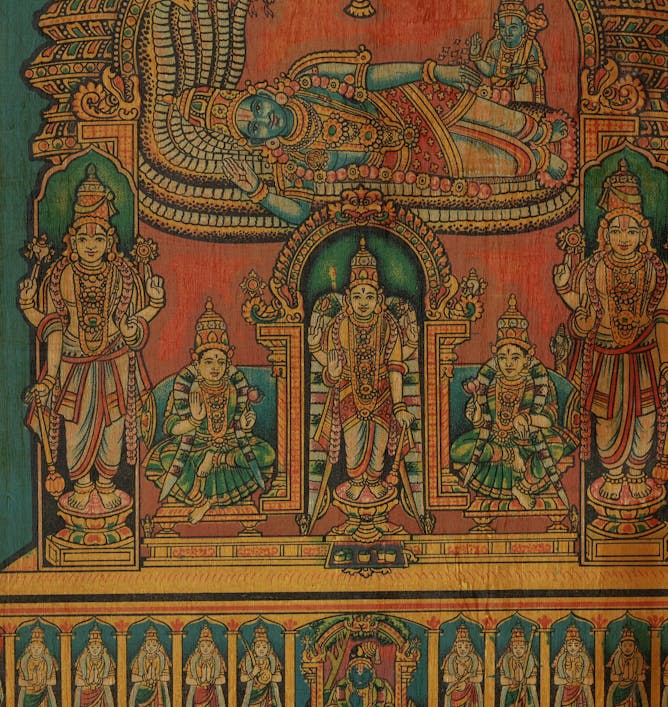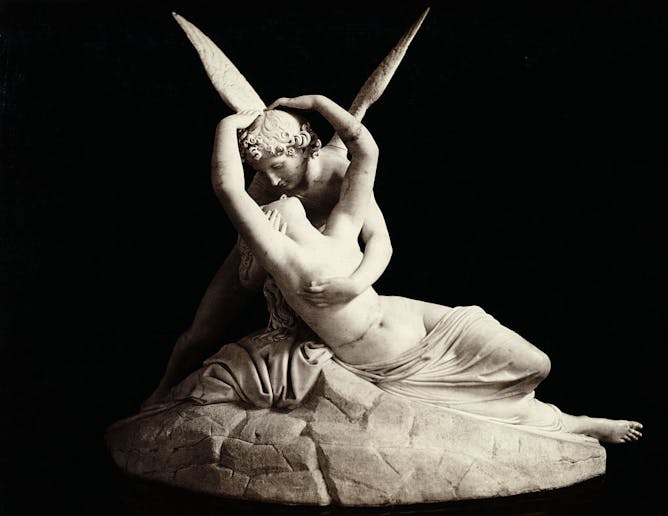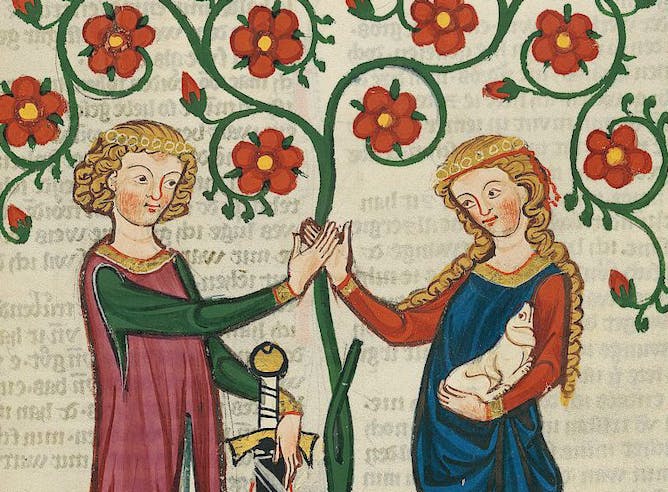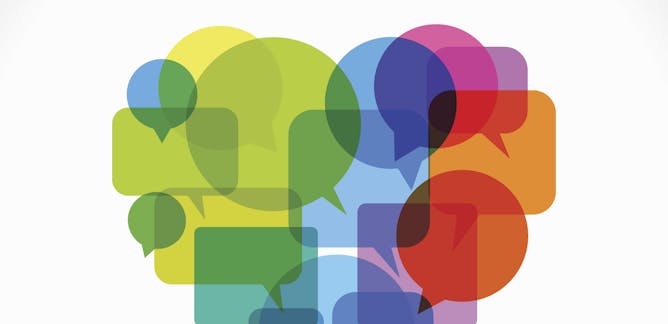|
|
|
|
I’m one of those people who doesn’t celebrate Valentine’s Day. The idea of exchanging cards, a box of heart-shaped chocolates or going out on a romantic date night isn’t my idea of an expression of love.
Don’t get me wrong − I do enjoy seeing others, young and old, celebrate their love. But that’s just the nature of this day – and of love itself: It can have different meanings and forms. Male poets in ninth century India, for example, expressed extreme devotion and longing for the divine in female voices, as religious studies scholar at UC Davis Archana Venkatesan writes. And according to USC Dornsife’s David Albertson, for the Greeks, ‘eros’ – ‘yearning’ or
‘passionate desire’ – was often a matter of life and death, a danger to avoid.
Indeed, a look at love poems from the Renaissance reminds us that love and Valentine’s Day aren’t exclusively about romance, as UMass Boston’s Shannon McHugh explains. Many Renaissance Italian poems were written for friends, parents, children and grandchildren; they could even be dedicated to Jesus and the saints.
So, wherever you are on this special day – praying to the divine matchmaker, the Old Man Under the Moon, in China; or to the Rabbit God in Taiwan for blessing same-sex romance; or simply celebrating single life, here’s wishing you a Happy Valentine’s Day. As poets, writers and philosophers remind us − love’s definition is expansive!
Also this Valentine’s Day:
|

|
Kalpana Jain
Senior Religion + Ethics Editor/ Director of the Global Religion Journalism Initiative
|
|

An image of a reclining Lord Vishnu with the alvar poets arrayed below him.
The Nadar Press Ltd., Sivakasi, ca. 1920s. From the personal print collection of Archana Venkatesan and Layne Little
Archana Venkatesan, University of California, Davis
In Hindu devotional poetry, love directed toward Vishnu can take many forms, including service, maternal adoration and the intense intimacy of lovers.
|

The love story of Psyche and Eros − also known as Cupid − has survived since the days of Rome and Greece.
Bettman via Getty Images
David Albertson, USC Dornsife College of Letters, Arts and Sciences
Conventional stereotypes about romance portray it as a passionate, irrational game. Ancient philosophers, on the other hand, viewed love as something dangerous − but also enlightening.
|

Sonnets still have a reputation for being about the unrequited love of a man for a woman.
AndreasPraefcke/Wikimedia Commons
Shannon McHugh, UMass Boston
These moving poems are a reminder that on Valentine’s Day, it’s OK to celebrate a broader definition of love.
|
|
|

Megan Bryson, University of Tennessee
Young people in China are no longer settling into marriages arranged by their parents. But they are still looking for blessings from Chinese gods to find everlasting love.
| |

Georgi Gardiner, University of Tennessee
Words have power, and what vocabulary you have at your disposal to describe your relationships with other people can shape what directions those relationships can take.
|

Jay L. Zagorsky, Boston University
Coming to grips with the economics of roses can be a thorny issue.
| |

Anna Mae Duane, University of Connecticut
Tech companies are offering AI companions as a convenient cure for the loneliness epidemic, but there have been other forms of faux relationships, and they tend to have more to do with ego than heart.
|
|
|
|
|
-
Debbie Felton, UMass Amherst
Ancient Greece and Rome may have handed down the image of rosy-cheeked Cupids, but their myths about him explore the messier – sometimes scarier – sides of love.
-
Jonathan Kaplan, The University of Texas at Austin
The famous biblical book alludes to God only once. Historically, though, most interpreters have argued the poem’s about love between the divine and his people.
|
|
|
|---|
-
More of The ConversationLike this newsletter? You might be interested in our weekly and biweekly emails: Follow us on social media: -
About The ConversationWe're a nonprofit news organization dedicated to helping academic experts share ideas with the public. We can give away our articles thanks to the help of
foundations, universities and readers like you. |
|
| |
| |
| |
| |
|
|
|
|
|
|
|